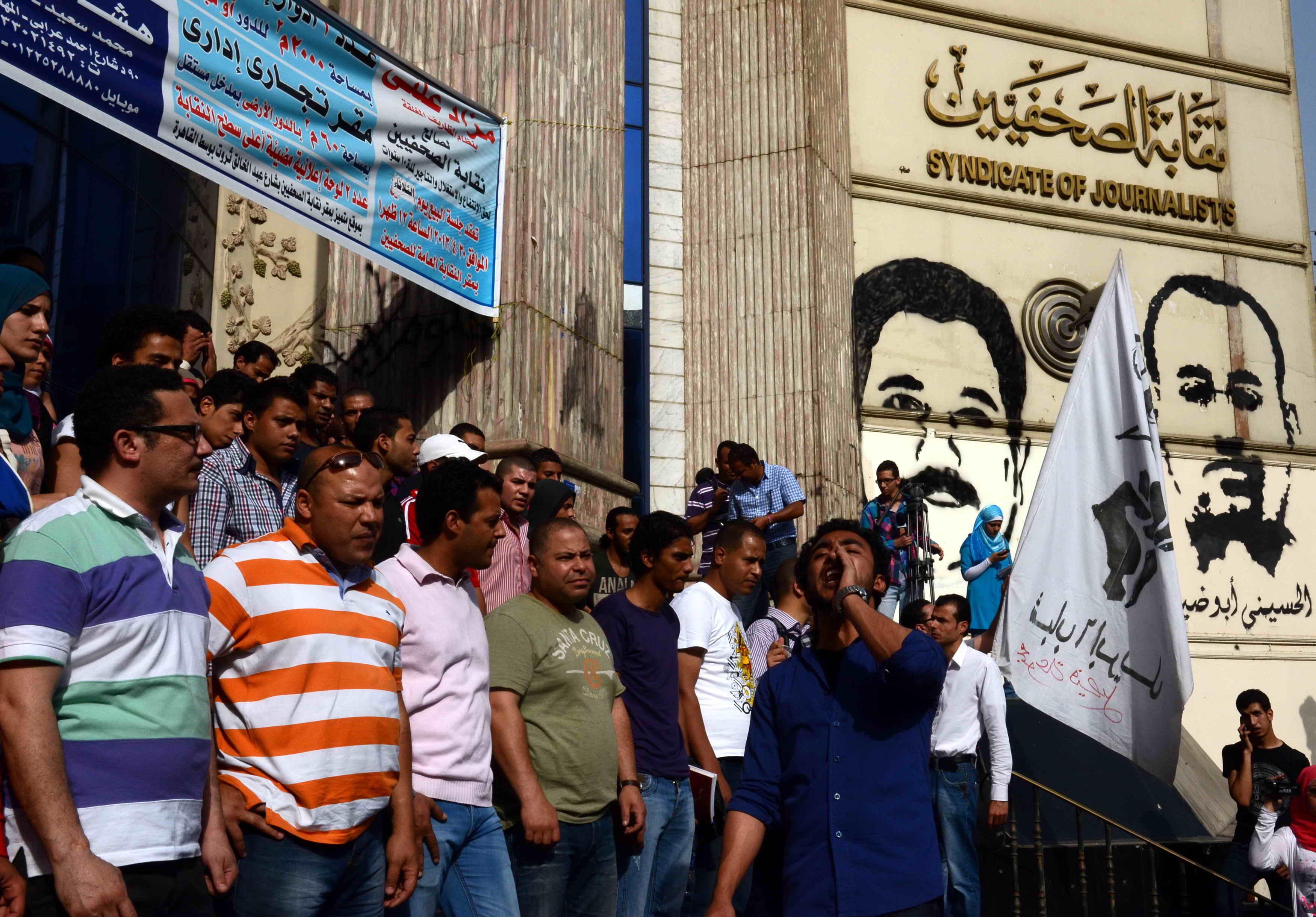CAIRO: With thanaweya amma stealing the spotlight throughout the academic year, little attention is given to higher education, which suffers from lack of proper facilities, qualified faculty and overcrowding among a slew of chronic ailments.
Experts disagree on whether the educational system in universities is developing in the right direction.
Naila Hamdy, chairperson of the Journalism and Mass Communications department at the American University in Cairo (AUC), sees great strides, but they are going both forward and backwards.
“The picture has changed in many ways, Hamdy told Daily News Egypt. “The situation has changed both positively and negatively.
However, Reda Bayoumy, professor of geology at the faculty of science in Cairo University, does not see improvements being made.
Bayoumy, who is a member in the Teachers’ Syndicate, told Daily News Egypt that the higher education system has been taking steps backwards.
For Bayoumy, the educational system in universities is broken down into two categories. “On the one hand are the professors who barely [make a] living; and on the other hand are the students, who are not allowed to express their opinions and are suppressed.
At the same time, Hamdy said, the emergence of private universities has given students more options by providing them with a diversity of programs. Public universities need to do a lot more to improve their potential, she added.
The quality of education needs to be enhanced in universities, namely in the graduate programs offered, Hamdy said.
She also suggested creating an alternative system through which education can be offered to “those who really need it, since the free education system “has proved its failure.
Free education should only be offered to qualified students, she said, while those who can afford it should pay a fee.
Still, Hamdy lauded the government and the Ministry of Higher Education for “exerting a lot of effort to enhance the university education system.
The curriculum at public universities is currently undergoing a number of changes, with several entities, such as USAID, taking a special interest in improving higher education in Egypt.
A tangled web
The problem with higher education in Egypt is complicated and the solution requires intervention on different fronts.
Many attribute the deterioration of higher education to students’ inability to engage in political activities. “As long as students are prevented from expressing their opinions and are not allowed to join political groups or parties, there is no hope for the development of our education system, Bayoumy said.
Professors have their own set of problems, whether in terms of pay or in the treatment they receive.
In a saga similar to the one that saw school teachers sitting assessment exams to be eligible for promised pay raises, university professors were also critical of such tests.
“Only now did the Ministry of Higher Education realize that professors are not qualified and are giving them tests to assess their qualifications? . Where were they before those professors were hired in the first place? Bayoumy asked.
In a statement sent to Daily News Egypt, Abdullah Sorour, Alexandria University professor and spokesperson of the National Committee to Defend Universities, said that professors are not optimistic.
According to Sorour, Higher Education Minister Hany Helal misled university professors “by letting them think that they are getting a raise should they pass some tests, which were obviously made to create more chaos in Egyptian universities.
“Ever since Helal was appointed minister, professors have not seen any good come from him, Sorour said, adding that one of the main strategies of Helal’s educational policies is to “avoid facing the real problems of education in Egyptian universities.
Nabil Abdel Badea is a professor of engineering at Cairo University and director of the Professors’ Association Committee, which was established to improve higher education.
Abdel Badea said that the committee will conduct a study on all universities in Egypt to determine the weak and strong points in the ministry’s project to raise the salaries of university professors.
The study will be sent to the Ministry of Higher Education for examination before it proceeds with increasing salaries in this year’s second semester and before the sixth annual conference of the Professors Association Committee taking place next month.
Away from administrative problems, many agree that the basics of the academic sphere are lacking.
Hamdy criticized university libraries, saying that they are not up to date and lack an electronic database. She also highlighted their need for financing.
Bayoumy agreed, saying that the campuses and libraries are underdeveloped.
While Hamdy was optimistic about the potential of higher education in Egypt, citing both foreign and local efforts, Bayoumy couldn’t see a silver lining.
“There is zero potential for any development, Bayoumy said, suggesting the government come up with “real solutions to the education crisis, because it has failed to do so thus far.
Government solutions?
In his speech at the People’s Assembly’s (PA) opening session last month, President Hosni Mubarak addressed the new law that stipulates establishing 17 new civil universities, highlighting its urgency.
Members of the education committees of both the Shoura Council (Upper House of Parliament) and the PA held a joint meeting during which they discussed plans for building these universities.
Ali Laban, member of the PA’s education committee, said that Mubarak suggested the establishment of non-profit universities to provide better education at a lower cost, in an effort to overcome the country’s education crisis.
Laban however underlined the fact that Mubarak has been promising to build 17 universities for four years, but so far “nothing has happened.
The MP suggested instead reducing the fees of private universities.
“If the government is serious about doing something to improve its higher education system, it should [address] the private universities’ huge fees and work on enhancing the public universities, he said.

